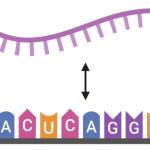From the frenzy of people who object to the use of mRNA technology in vaccines, one might conclude that genetic material from space aliens was being injected into people in some grand plan to convert humans into giant tadpoles.
Immune Response
Over the past several years, the medical community has learned, to its dismay, that we can experience a “twin-demic” of winter infectious diseases – simultaneous COVID-19 and flu outbreaks resulting in intense stresses on healthcare delivery.
By Maitreyi Shivkumar, De Montfort University
President Trump’s COVID-19 recovery has thrust into the spotlight the possibilities of novel, experimental therapies for this potentially deadly disease.
There are several coronavirus vaccines that are currently in Phase 3 clinical trials. For vaccines, this final experimental stage requires tens of thousands of people in order to properly assess efficacy and safety.
During flu season, I write a lot of articles promoting the flu vaccine. Why? Because it is the best way to avoid getting the flu.









